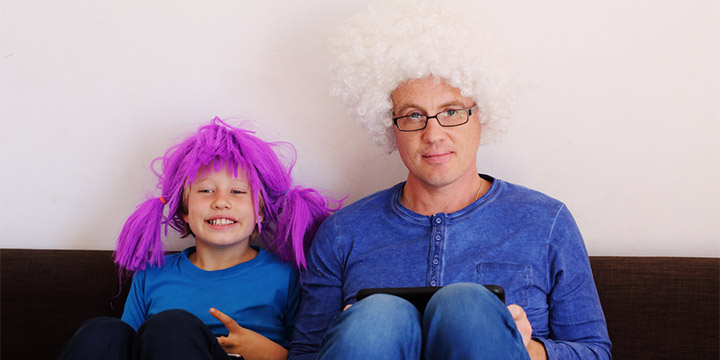Attention Deficit Hyperactivity Disorder – or ADHD – is increasingly common in Australia. This disorder affects up to one in 20 children in Australia and an unknown number of adults. It manifests in a number of ways: some signs of ADHD include above average restlessness, inability to focus, being easily distracted, inattentive and fidgety and having trouble controlling impulses. Because these traits are common to many children, ADHD often goes undiagnosed until it starts to interfere with everyday life. While raising a child with ADHD can have challenges, it’s important to remember that ADHD does not affect the child’s intelligence or character, it’s simply a behavioural disorder which can be managed using the right strategies. If you suspect your child has ADHD, visit a child psychologist, doctor or paediatrician to gain professional advice.
Strategies for Children with ADHD
- Find a psychologist your child feels comfortable talking to
- Contact your child’s school regularly to discuss any issues that might arise and discuss ways of dealing with them
- Diet can play a big part in behaviour and concentration levels, so make sure your child is eating plenty of healthy foods
- Set up a daily routine so your child can understand what’s happening throughout the day – it can also be useful to give little warnings about what’s going to happen next, e.g. “it’s time to leave in five minutes”
- Keep up their physical activity
- Communicate instructions clearly and briefly
- Speak directly to your child – not from across the room or looking the other way, but with direct eye contact as much as possible
- Focus on teaching your kids to do the right thing, rather than punishing them for doing the wrong thing
- Understand that children with ADHD sometimes can’t control their impulses and this is not necessarily grounds for punishment
- Discuss appropriate responses to scenarios as they occur
- Teach them strategies for coping with challenging situations, including when to apologise, when to walk away and when to speak to an adult
- Praise good behaviour
- Try to facilitate healthy sleeping habits – plenty of exercise during the day and a set bed time can help with this
- Leave a one-hour buffer zone for winding down before bed time
- Limit screen time, especially before bed
- Divide tasks into smaller, more “digestible” chunks
- Create a quiet zone in the house where your child can retreat to if they’re feeling overwhelmed
Strategies for Parents Coping with ADHD Children
- Seek support from family members and friends
- Remember that your job is to support your child, not control them
- Eat a balanced diet that provides plenty of energy
- Use your child’s wind down time as a chance to relax and bond with them
- Try to create healthy sleep patterns
To learn more about ADHD support, speak with one of our child psychologists at Strategic Psychology Canberra. Call us on 02 6262 6157 today.
